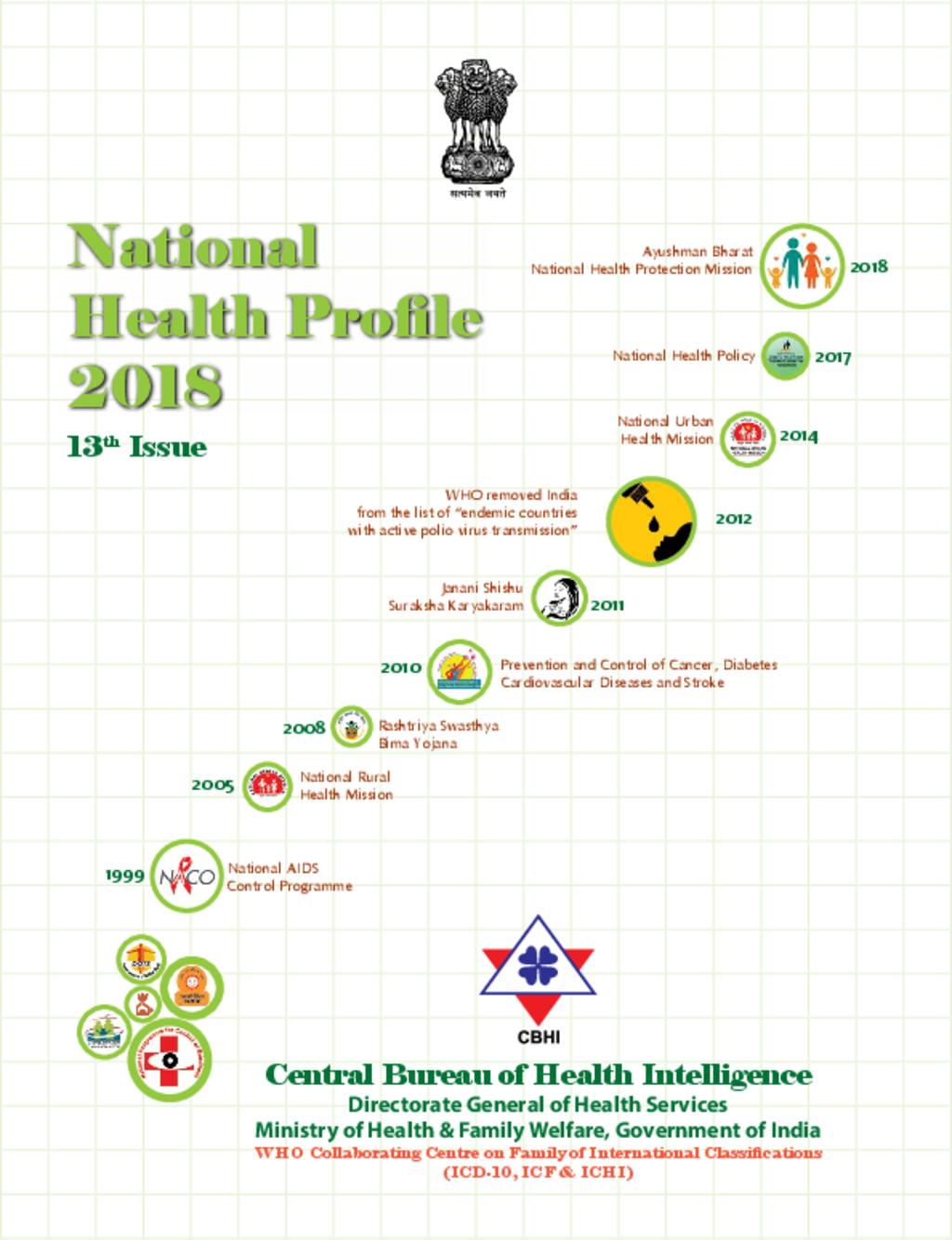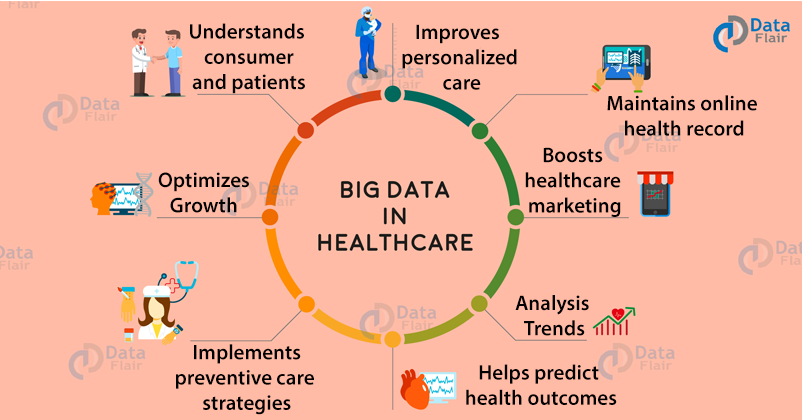How Big Data is reshaping the Healthcare Industry – Top Applications
Almost every sector is using Big Data and the most benefitted one is healthcare. So, today I am going to tell you everything about Big Data in healthcare sector. Let’s start understanding how healthcare sectors are using Big Data in a different way.
Red, yellow and blue tablets like Gems which everyone used to love as a kid and found reasons to look ill. Finding reasons to not go to school, and act uncool was a nostalgic memory that everyone used to cherish in their childhood.
As I grew up I realized that my whole childhood was a deception, because those gems( not a pill anymore) was a fake treatment. It was nothing but the Placebo attachment.
The placebo effect is anything that seems to be what “real” medical does but isn’t. It does not contain any active substance meant to affect health.
Not, going anywhere but the clinic next to my house had two physicians. They used their judgments to make treatment decisions but, as the generation passed by the judgment started taking the support of the information.
Now, they review the clinical data, the past records and make an informed decision. Doctors now don’t consider the patients their possession, rather understand a patient to the best discretion.
In today’s time knowing about the disease and treating it at an early is far more simple. With data, prevention has become cheap and less expensive.
Also, it is rightly said that prevention is better than cure. This mission explains how-
Big Data in Government Health Policies
Talking about 2017 the government launched National Health policy and in 2018 the Ayushman Bharat National Protection Mission(ABNPM). The mission was given the highest priority but do you know what made the government do so? THINK!
Ayushman Bharat will be a ‘gamechanger’ in the healthcare sector: PM Modi
It is the power of Data that helps to sort out the priority. Starting from the population to money everything is in numbers. These number when arranged in homogeneous clusters to get meaningful insights forms Data sets.
The unstructured or structured data are stored, analyzed and interpreted and on the basis of this analysis is done (using the Big Data tools) for better decisions or strategic moves.
Similarly, the aim of ABNPM is to cover over 10 crore poor and vulnerable families (approximately 50 crore beneficiaries). It will provide coverage for up to 5 lakh rupees per family per year for secondary and tertiary care hospitalization. This is the power of BIG DATA.
Now the question is what is the reason behind it? The better decision for the welfare of the people or PM’s strategic move.
P.S: You can’t be Artificially intelligent to find this answer.
Before we start discussing Big Data and the real-life applications in healthcare we can Dwell here and thank Data and Science for revolutionizing the healthcare industry.
The reduced cost of treatment, improved quality of life, prediction of outbreaks of epidemics and preventable diseases awareness has helped to save thousands. 🙂
Why so much of Big Data?
The reason behind the scaling of this is because the big data revolution has transformed the way we live. The last few years have seen a tremendous generation of data that has impacted our day-to-day lives, but when it comes to healthcare, the field lacked the development.
It is true that the healthcare industry has certainly lagged behind other industries like banking, retail, etc. in the usage of Big Data. This is because these industries have embraced Big Data earlier and have reaped profits and greater customer satisfaction. But, the change that Healthcare has made in recent years is truly a blessing for the world. Interested to know how? Read below-
Big Data in Healthcare
Positive and life-saving outcomes are the two big things that have made a big and successful dent through Big Data.
It is true that collecting the data must have been costly and time-consuming. But, with the advent of technology not only it is easy to collect and store the data but, to get insights from it has also become a cake walk.
Healthcare Data Analytics
With analytics data-driven findings is made simple and prediction and solving of a problem can be done in speed. It assesses methods and treatments faster. Better track of inventory also makes sure that one has to never be sorry.
Artificial Intelligence
The amount of data in healthcare organizations is increasing exponentially. Artificial intelligence helps generate actionable insights to not only improve treatment quality but healthcare organizations’ efficiency. It is increasingly being applied to everything from data acquisition, interpretation, and the automation of repetitive tasks.
Data Applications In Healthcare: Advancement in Hospitality (Hospitals 😀 )
1. Patients Predictions – {A stitch in time saves nine}
In a private hospital, you will barely see people complaining about the doctors’ unavailability. This is possible because of Data Analytics. Through this hourly, daily, weekly (Any-ly P ;D) calculation can be done. Also, it is rightly said that a stitch in time saves nine.
With “time series analysis” technique accurate algorithms can be derived and future trends and admission can be predicted. So if there is a need for extra staff, proactive steps are taken. Reduced waiting times for patients and better quality of care can help them to recover fast.
2. Electronic Health Records (EHRs)- { Digitalisation is the key}
Imagine you getting trigger warnings and reminders of getting a new lab test done. Or the doctor tracking your prescriptions to keep a check on you.
With digitalization and big data, this is a boon to the industry. With no burden of paperwork and files, your demographic data, medical history, allergies, laboratory test results can be stored online and the struggle can be reduced.
Do you know – Big Data is playing a major role in Indian Union Budget
3. Real-Time Alerting- {Better safe than sorry}
Blood pressure alert!! Clinical Decision Support (CDS) software helps to analyze medical data on the spot. This provides health practitioners with advice as they make prescriptive decisions.
For example, if a patient’s Bp increases alarmingly, the system will send an alert in real-time to the doctor who will then take action to reach the patient and administer measures to lower the pressure.
4. Enhancing Patient Engagement – {Hitting the hammer when it is hot}
The world is shifting towards a healthy lifestyle. Through engagement, marketers are trying to create a healthy win-win situation.
Consumers are buying fitbits and smartwatches to stay healthy and keep a check on their health and marketers are making their pockets healthy by using this opportunity to the fullest.
But, the catch here is that since patients are monitoring their health, health insurance companies are providing incentives to lead a healthy lifestyle and so they are giving money back to people using smartwatches.
Big Data Examples in Healthcare
1. Big Data and Cancer
Big Data aims to collect data from pre-treatment and pre-diagnosis data to the end-stage. The data is aggregated with clinical and diagnostic data, it will make prediction feasible for cancer care.
This predictive analysis helps to categorize different cancers and improves cancer treatment. This proves as the biggest benefit of Big Data to the healthcare industry.
By leveraging the historical data of patients with similar conditions, predictive algorithms can be developed using R and big data machine learning libraries to project patient trajectory.
Its sad, that 96% of the potentially available data on patients with cancer is not yet analyzed. Therefore, flatiron Health developed a service called Oncology Cloud. This service aims to gather data during diagnosis and treatment and make it available to clinicians to advance their study.
2. Big Data Helps Fight Ebola in Africa
Big Data helps predict the spread of epidemics. Through the location tracker, population movements can be predicted and the spread of the virus can be minimized. This gives insights about the most affected areas, which in turn leads to better planning of treatment centers and enforce movement restrictions in those areas.
IoT and Big Data Analytics in Healthcare
IoT adds great value to the healthcare industry. The devices generate data about health of a person and send it to the cloud will lead to a plethora of insights about an individual’s heart rate, weight, blood pressure, lifestyle and much more. Through Big Data real-time monitoring of patients can be done.
This will help in proactive care. The sensors and wearable devices will collect patient health data even from home and will help to monitor the healthcare institutions. This will also provide remote health alerts and lifesaving insights to their patients.
Smartphones have added a new dimension. The apps enable the smartphone to be used as a calorie counter to keep track of calories; pedometers to keep a check on how much you walk in a day. All these have helped people live a healthier lifestyle.
Moreover, this data could be shared with a doctor, which will help with personalized care and treatment. Patients can make lifestyle choices to remain healthy.
Summary
Big Data has been a pure revolution for the healthcare industry. Starting from understanding the consumers or patients to personalized services it has come a long way.
With technologies like trend and predictive analysis, it has optimized the growth by multiple times. Though, this is just the beginning. With the development of technologies, new and better treatments and diagnoses saving more lives by curing more diseases are possible.
So, this was all about Big Data in Healthcare. Big Data is entering in almost all sectors and that’s why I want to make you aware of its career opportunities. Must check Big Data Career Opportunities with different job roles.
Did you enjoy the article? Share your feedback with us.
Your 15 seconds will encourage us to work even harder
Please share your happy experience on Google




Great how big data is helping in so many different cases. Great article. Bookmarking this site.